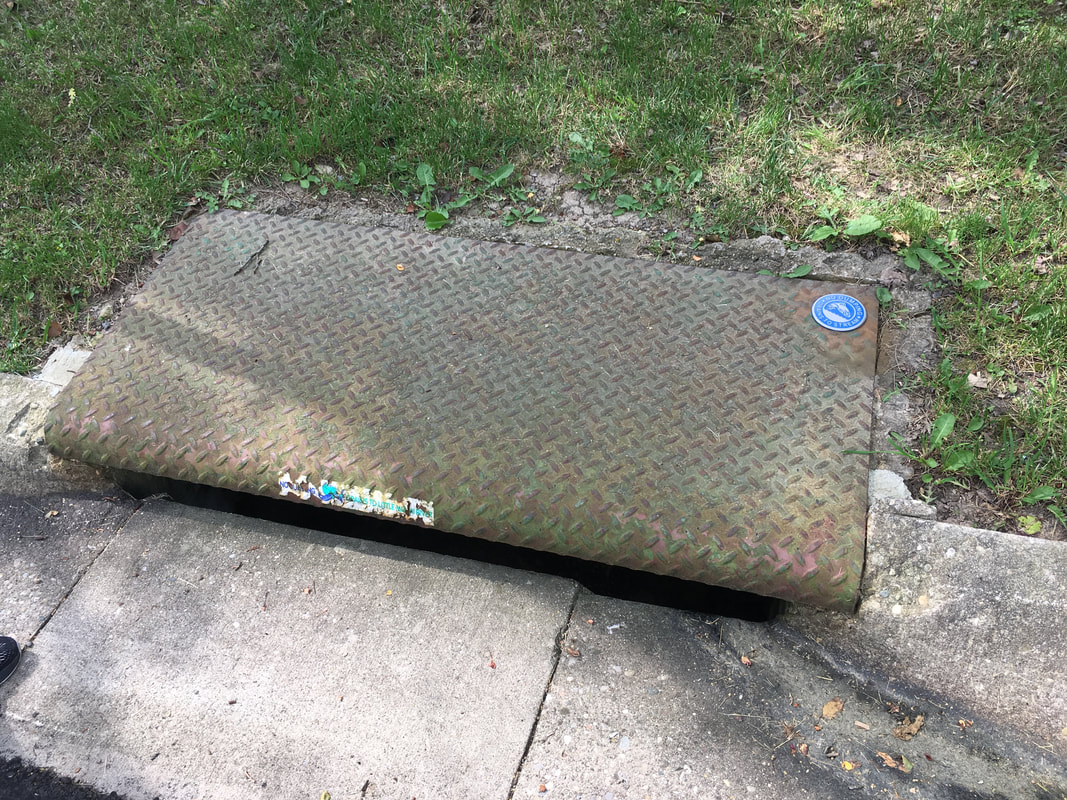 Often people think that disposing of waste liquids, products, etc. down a drain is ideal because eventually it all gets cleaned out at a wastewater treatment plant. After all, all drains go to the same place right? The answer to that question however is NO. It is important to understand the difference between sanitary sewers and storm sewers so we can protect our water resources. The sanitary sewer is a system of subsurface pipes that carries sewage from bathrooms, sinks, kitchens, and other plumbing components to a wastewater treatment plant where it is filtered and treated before being discharged. The storm sewer however is a system designed to carry rainfall runoff and other drainage. It is not designed to carry sewage or hazardous wastes that can enter the environment as pollution. The runoff is carried in subsurface pipes and/or open ditches and discharges untreated into local streams, rivers and other surface water bodies. Storm drain inlets are typically found in curbs and low-lying outdoor areas. Some older buildings have basement floor drains that connect to the storm sewer system. (MSU WATER) Disposal of chemicals or hazardous substances to the storm sewer system damages the environment. Motor oil, cleaners, paints and other common household items that get into storm drains can poison fish, birds, and other wildlife, and can find their way into drinking water supplies. In addition, grass clippings, leaves, litter, and organic matter can clog storm drains, cause flooding, and increase nutrient pollution in waterways. You may have seen storm drain tags placed by Warren County SWCD reminding people "Only Rain Down the Drain" and other similar messaging to help protect our environment and water resources. There are a wide range of things people can do at home to help safeguard our water sources; from installation of rain gardens and rain barrels to slow down stormwater runoff to washing your car NOT in the impervious driveway. But simply put, only rain water should enter our storm drains! To find out more about what you can do to help prevent water pollution, visit our Partners at Save Local Waters!
10 Comments
4/9/2021 11:11:16 am
My friend wants to start up a medical business, but he wants to ensure that he properly disposes of hazardous materials. It makes sense that he would want to have the right sanitary piping installed! That way, he doesn't risk dangerous chemicals going into the storm drain.
Reply
5/7/2021 03:46:46 pm
When looking for plumbing supplies, it is important for us to prioritize their sanitary level. It makes sense for us to be mindful of the level as it impacts the plumbing quality. I will keep this information in mind when I look for a supplier.
Reply
9/29/2021 08:44:01 pm
Thank you for the clarification on where the different water pipes lead. I didn't know that storm sewers led back to other natural bodies of water. It makes sense though since I, for one, wouldn't want my sanitary sewage getting into lakes and rivers.
Reply
11/28/2022 04:45:33 pm
It was interesting to me when you talked about how sanitary sewers take waste to treatment plants. I would imagine that these sewer systems would need to have powerful pumps in order to transport waste. I would think that waste can be difficult to move through pipes sometimes, so a powerful pumping system would be needed.
Reply
1/10/2023 10:46:33 pm
Great tip about making sure local streams are treated. My tank doesn't seem to be filtering correctly. I'll have to have it inspected.
Reply
3/8/2023 10:11:15 pm
It's great to know that the sanitary sewer is a network of underground pipes that transports sewage from toilets, sinks, kitchens, and other plumbing fixtures to a wastewater treatment facility, where it is filtered and cleansed before being released. My sister claims to have leaky sinks. I'll advise her to contact a plumber.
Reply
6/12/2023 04:53:17 am
It's great that you explained that storm sewer is designed to carry rainfall runoff. My friend told me that their plumbing system is acting up. I should advise her to hire a plumber to prevent further damage.
Reply
6/13/2023 09:42:12 am
Thank you for explaining that hazardous substances on the storm sewer system are damaging to the environment. My friend told me that their project needs plumbing supplies. I should advise him to turn to a store that is versed in plumbing supplies distribution.
Reply
2/5/2024 06:21:40 pm
This article does a great job of explaining the important difference between sanitary sewers and storm sewers. It's eye-opening to realize that disposing of certain substances down the drain can harm the environment. I appreciate the reminder to be mindful of what goes into storm drains and the suggestions for actions we can take at home to protect our water sources. Thanks for raising awareness!
Reply
4/23/2024 10:30:39 pm
I visited a wastewater treatment plant on a field trip and was amazed by the scale and complexity of the operation.
Reply
Leave a Reply. |
Details
Warren County SWCD Staff BlogA blog to keep you informed on all the latest news at Warren County SWCD and in the conservation world. Archives
May 2024
Categories
All
|
|
|
Contact:PHONE: (513) 695 - 1337
EMAIL: [email protected] HOURS: Monday - Friday 7:30am - 4:00pm (except holidays) Connect:Warren County Soil & Water Conservation District Copyright © 2016
Warren SWCD Privacy Notice. Emails are serviced by Constant Contact. Constant Contact's Privacy Notice. |

